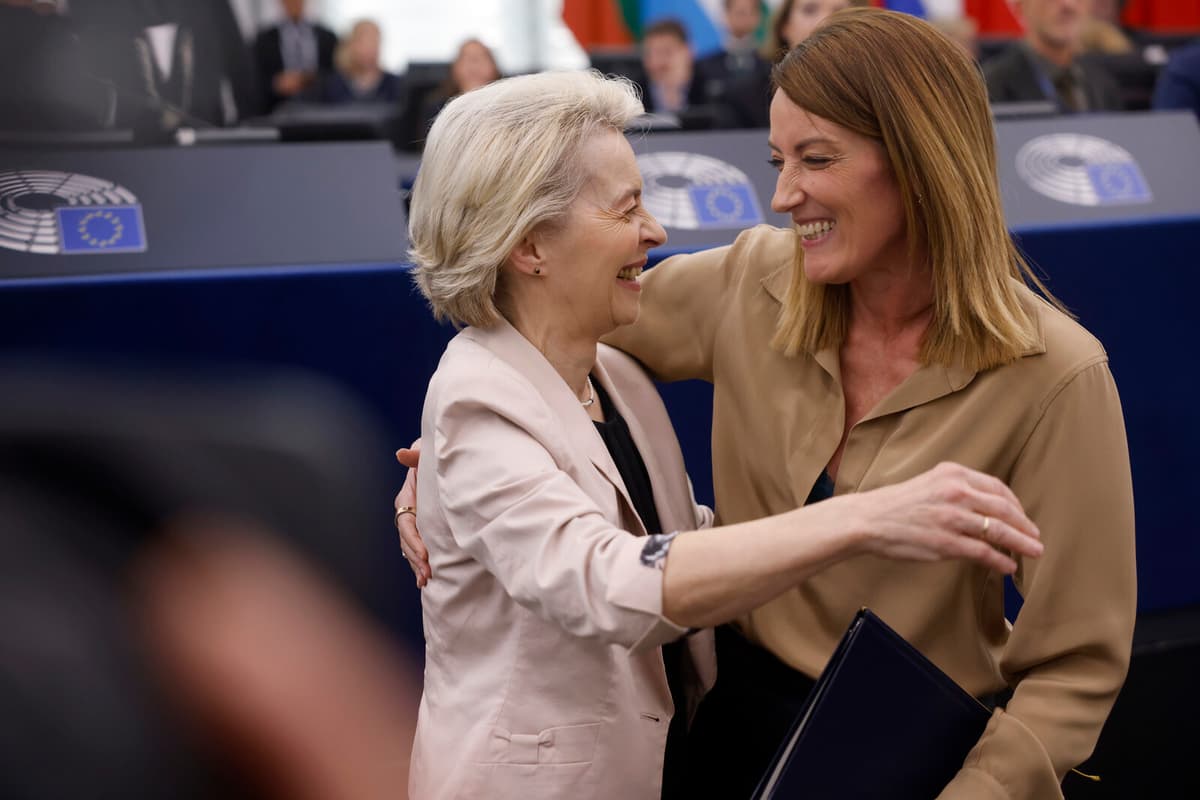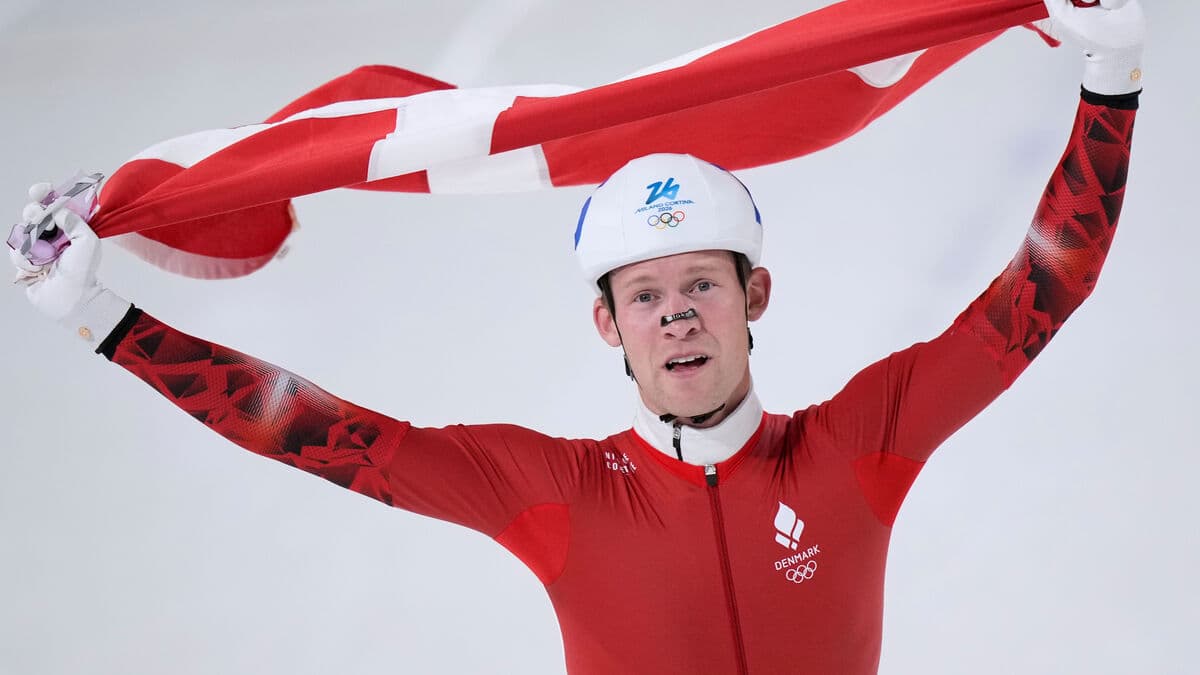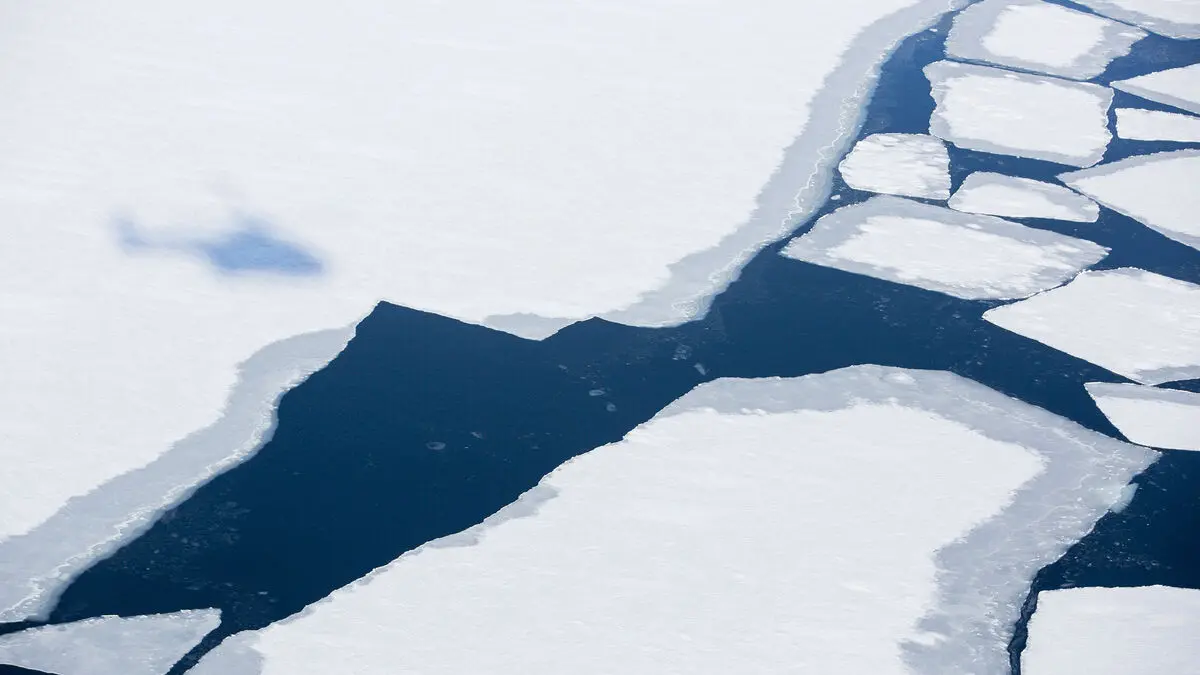Sweden's former EU minister is given responsibility for the environment and water resilience in the new EU Commission, which takes office on December 1.
The approval came from the EU Parliament in a vote at lunchtime.
It feels very good. These are uncertain times, and it's very reassuring to have such clear support from the Parliament. We're all very ready to start and are really on the starting blocks, says Roswall to TT and SR Ekot in Strasbourg.
To Saudi Arabia
The vote margin was, however, record-narrow. Only 88 votes separated von der Leyen's new assembly, which is less than any other EU Commission has previously been supported with.
This gives an indication that legislation may be difficult to get through in the future.
Yes, it absolutely can be. The election result in the spring (in the EU election) was also clear in that regard. We also have member states with different elections all the time, says Roswall.
Her first task as Commissioner will be on Sunday when she travels to Saudi Arabia for a conference on water issues. On Tuesday, she will then be thrown into tough compromise negotiations between the EU Parliament and the EU Council of Ministers on a one-year postponement of the EU's disputed new rules against deforestation.
It's extremely important that we reach a conclusion and can agree before Christmas, says the incoming Environment Commissioner.
Advertisement
Kallas takes over
Commission President Ursula von der Leyen warned of the difficult situation surrounding Russia's war in Ukraine in her speech before the vote.
Europeans must once again fight for freedom and independence. It may look different than for previous generations, but the same thing is at stake, said von der Leyen in Strasbourg.
Her new Commission will perhaps primarily be noticed externally through the fact that Estonia's former Prime Minister Kaja Kallas takes over as Foreign Affairs Chief instead of Spanish Josep Borrell.
Among the heavyweights are also French Stéphane Séjourné with responsibility for prosperity and industrial strategy, Finnish Henna Virkkunen who will handle digital issues and security, and Spanish Teresa Ribera who will handle "a clean and competitive transformation".
This is how it has gone in the latest votes on the EU's incoming Commission:
2024 with President Ursula von der Leyen: 370 yes against 282 no
2019 with von der Leyen: 461–157
2014 with Jean-Claude Juncker: 423–209
2010 with José Manuel Barroso: 488–137
2004 with Barroso: 478–84
1999 with Romano Prodi: 510–51
1995 with Jacques Santer: 417–104
Source: EU Parliament
Here is the new EU Commission that takes office on December 1:
Ursula von der Leyen, Germany (born 1958) – President
Kaja Kallas, Estonia (1977) – Vice President and Foreign Affairs Chief
Raffaele Fitto, Italy (1969) – Executive Vice President for cohesion and reforms
Roxana Minzatu, Romania (1980) – Executive Vice President for people, skills and preparation
Teresa Ribera, Spain (1969) – Executive Vice President for clean and competitive transformation
Stéphane Séjourné, France (1985) – Executive Vice President for prosperity and industrial strategy
Henna Virkkunen, Finland (1972) – Executive Vice President for technological security, independence and democracy
Maria Luís Albuquerque, Portugal (1967) – financial affairs and investments
Magnus Brunner, Austria (1972) – internal affairs and migration
Valdis Dombrovskis, Latvia (1971) – economy and productivity
Christophe Hansen, Luxembourg (1982) – agriculture
Wopke Hoekstra, Netherlands (1975) – climate and clean growth
Dan Jørgensen, Denmark (1975) – energy and housing
Costas Kadis, Cyprus (1967) – fisheries and maritime affairs
Marta Kos, Slovenia (1965) – enlargement
Andrius Kubilius, Lithuania (1956) – defense and space
Hadja Lahbib, Belgium (1970) – crisis management and equality
Michael McGrath, Ireland (1976) – democracy and justice
Glenn Micallef, Malta (1989) – youth, culture and sport
Jessika Roswall, Sweden (1972) – environment, water and competitive circular economy
Maros Sefcovic, Slovakia (1966) – trade and economic security
Piotr Serafin, Poland (1974) – budget and public administration
Jozef Síkela, Czech Republic (1967) – international partnerships
Dubravka Suica, Croatia (1957) – Mediterranean affairs
Apostolos Tzitzikostas, Greece (1978) – transport and tourism
Olivér Várhelyi, Hungary (1972) – health and animal protection
Ekaterina Zacharjeva, Bulgaria (1975) – research and innovation
From the previous Commission, von der Leyen, Dombrovskis, Hoekstra, Sefcovic, Suica, and Várhelyi remain. The others are new.






